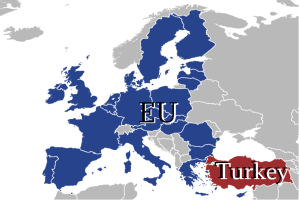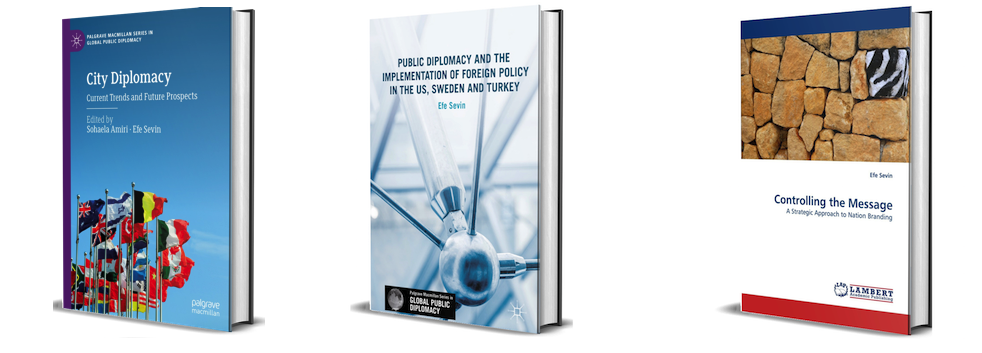Recently I read an article about the perception of Turkey and Turks in the European public opinion in regard to Turkey’s long awaited EU membership. Shortly speaking the article talks about the negative public opinion and opposition against Turkey’s membership bid. The author asks whether Turkish image has been suffering from the “wrong sort of immigrants” – a question that I have tried to answer in an earlier post.

The article has a substantive summary of Turkey’s weaknesses and strengths on the way to become a full-fledged EU member. The negative aspects about such an acquisition are “immediate and personal”: “the loss of jobs, the threat of terrorism, the weakening of national culture”, where the positive aspects are “strategic, long-term and rather abstract: future economic growth, a stronger EU foreign policy, energy security”. I am not going to go into a discussion over whether or not Turkey should become a member of the Union. Rather, I will focus on how branding can/should be utilized to create a more pro-Turkey public opinion.
Thus far, when Turkey wanted to strengthen its hand in the negotiation process; it either tried to blame EU (for being unfair to Turkey) or underlined two issues: “young population” and “Muslim secular identity”.

When we consider the aging population of Europe, and how the welfare systems works; yes, young population is an important advantage. But public opinion is based on perception, not scientific explanations or technical realities. Young population means more people looking for jobs! So, in fact, in perception, Turkey’s young population argument is heard by the public as “Hey, we know you are already unemployed, but we are bringing young and qualified people into the job market… It sucks to be you”..
The article cites Paul Taylor with regard to Muslim-secular identity.
“On television, Turkey means minarets, headscarves and the Bosphorus bridge”, says Paul Taylor, Reuters’ European affairs editor. “In the newspapers, a ‘secular state with a predominantly Muslim population’ gets edited down to ‘a Muslim country'”.
I will not further elaborate this comment in order not to strengthen the muslim stereotypes, but, being a Muslim country does not have positive connotations.
 I highly appreciate the findings of this article and appreciate the fact that it has associated the concept of nation branding with EU membership. Now, a brand has to offer a solution to the problems you have in your hand. This is why, while branding Turkey, the most important thing to consider is the perception of European public opinion – what do Europeans see as a problem? Unlike what Turkey thinks, possibility of a collapsed welfare system or negative reactions from Muslim countries do not constitute major problems for them. Consequently, the brand promises of Turkey do not appeal to them. Conversely, these promises repel the public as Turkey clearly distinguishes itself in demographic terms. Although the message trying to be created on Turkish side is “We are different and ready to create a synergy with EU”, the message understood on the European side is “They are not one of us”.
I highly appreciate the findings of this article and appreciate the fact that it has associated the concept of nation branding with EU membership. Now, a brand has to offer a solution to the problems you have in your hand. This is why, while branding Turkey, the most important thing to consider is the perception of European public opinion – what do Europeans see as a problem? Unlike what Turkey thinks, possibility of a collapsed welfare system or negative reactions from Muslim countries do not constitute major problems for them. Consequently, the brand promises of Turkey do not appeal to them. Conversely, these promises repel the public as Turkey clearly distinguishes itself in demographic terms. Although the message trying to be created on Turkish side is “We are different and ready to create a synergy with EU”, the message understood on the European side is “They are not one of us”.
One sentence summary: A new brand (a more accurate image of what is going on in the country) is necessary for Turkey – let it be through events (as Simon Anholt suggests) or through communication (although Simon Anholt thinks it is not possible).
PS: Apparently, I used to be a better blogger earlier this year. I promise I will try to post more often.

Efe, you wrote in your earlier post “Nation Branding: The perception of a country’s image by the foreign public opinion”, but here you say in your summary “A new brand (a more accurate image of what is going on in the country) “. Don’t you think it is a bit contradicting? Controlling the perception of people is far more harder than controlling the image of a country.
ps: … and I agree with your ps.
I didn’t know you were following my blog this closely 🙂
Well, it is not really a contradiction in fact. When we are talking about branding or reputation or however you name it, reality is not as important as the perception. Shortly, a more accurate image, in this aspect, refers to the image from foreign public opinion’s point of view.
You are definitely right about the difficulty in controlling the perception, but the image of your country is nothing but the perception of the image by foreign publics…